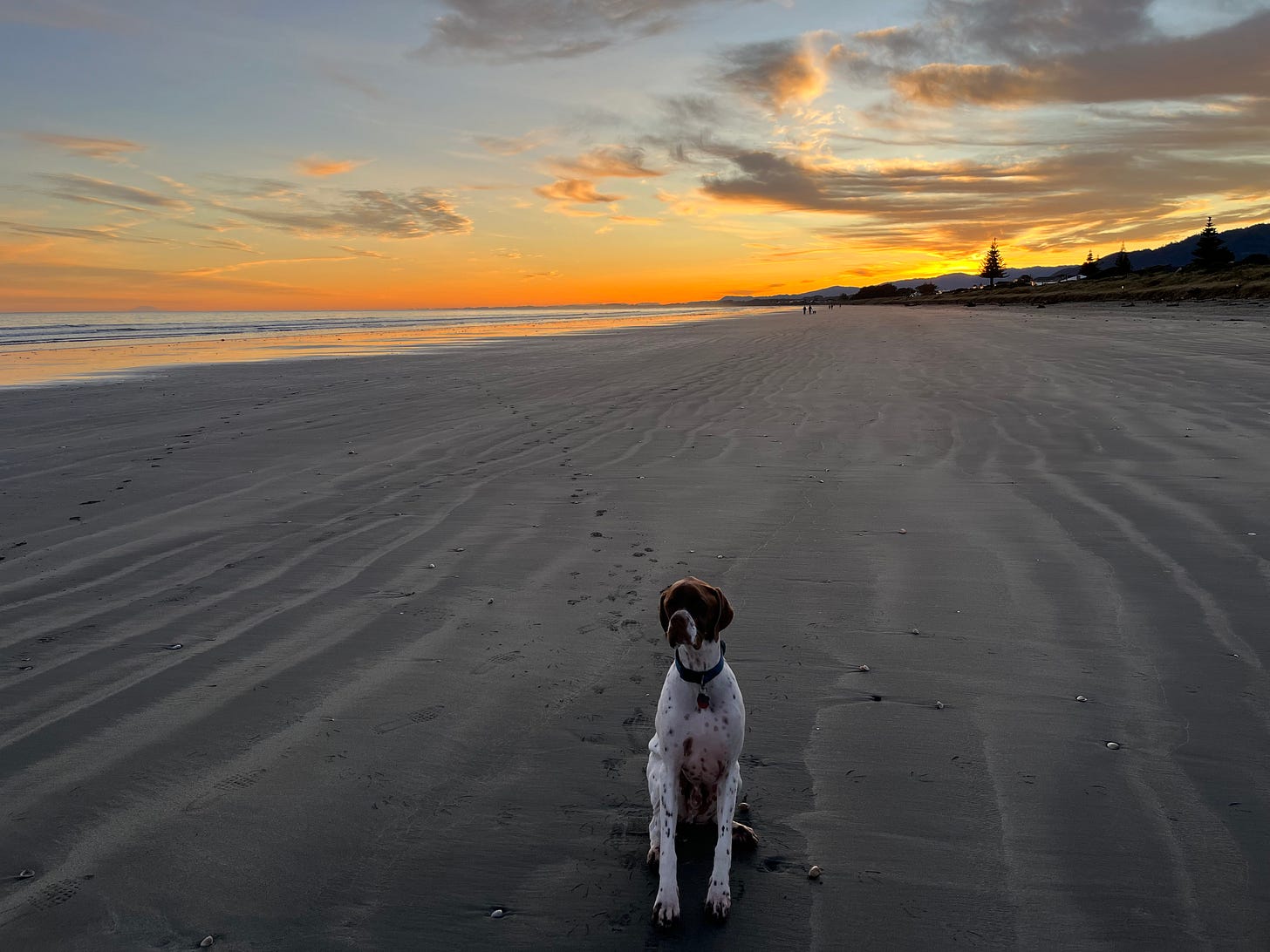Connection, on purpose
Winter Season 2022, Part 6: the importance of building a connected collective of learners
Whosoever is delighted in solitude is either a wild beast or a god.
- Aristotle
Our 14 year old English Pointer died last Friday. In the week since then I have found it hard to think clearly. She was a good friend, and she taught me a lot about patience and commitment. We miss her dearly.
Pluto, our 2 year old Pointer, misses her too. My runs with him this past week have had a resonance about them that hasn’t been there before: where they were fun, now they are special.
It’s kinda like we take Tully’s memory with us.
We’re not as individual as we like to think are we. No matter what, we can’t escape strong bonds of connection that bind us to other living and non-living things.
Margaret Thatcher was completely wrong: there is such a thing as society. We can only stand as a collection of individuals if we’re all wild beasts or gods.
This is the one clear thought I’ve had over the last week and a bit.
And now - after a lot of running, some mind-churning, and a couple of key conversations - I wonder if this is what’s missed when schools go down the learner agency path.
Don’t get me wrong - I am all for autonomy. I think Dan Pink is correct when he argues that it is a universal human need.
But burgeoning autonomy can’t be all we offer our kids. And really, as I’ve run and thought, it’s occurred to me that this is what kids get in spades when learner agency is king.
+ Want to play? - go for it, choose whatever you like from what’s possible.
+ Got an interest? - use it for your project/assessment.
+ Got a dream? - let’s help you achieve it.
Where’s the opportunity to bind people, deeply?
Dan Pink also talks about the importance of purpose, arguing it too is a universal human need. But, and this is crucial, he frames purpose in relational terms, and he quotes Csikszentmihalyi to illustrate his point
“One cannot lead a life that is truly excellent without feeling that one belongs to something greater and more permanent than oneself.”
From Dan Pink’s book Drive, p. 143.
I think that instead of purpose Pink should have said connection was the universal need.
As I’ve thought about schools and what I see in them, I have questions.
What do you and your learners do together?
What shared experiences are permanent features of the classroom?
Have you thought about these things as anything more than functions of the school day?
For instance, is there a ritual you have for eating together that means it’s more than a chance to get some food in your stomachs? This ritualised, sacred aspect of eating used to be important. Still is for some.
A key plank of Emile Durkheim’s sociology theory was the distinction between the profane - everyday things and events - and the sacred. He argued it was participation in the sacred that bound people and therefore helped to foster a sense of belonging.
The sacred is what elevates people beyond themselves. It helps them become loyal to others, not just their individual urges and passions.
This is what Pink means when he talks about purpose.
And so, I think that one thing deserving of deep consideration is the inclusion of the sacred into any pedagogy that is driven by learner agency. There needs to be something throughout the day that elevates and binds people.
Like anything important, it’s worth doing on purpose.
And what is more important than the connection we have with others?
Below the paywall is a link to register for an an On Learning Community Chat via Google Meet. This opportunity is exclusive to paid subscribers.
Join me at 3:30pm Wednesday afternoon NZ time for an hour, as we talk about this idea and share thoughts about how it can be made real.


